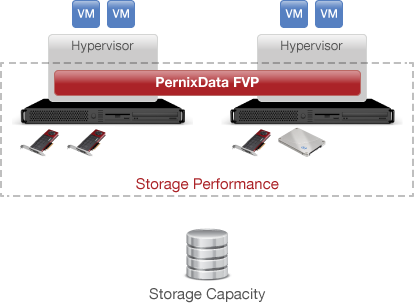Release: New VMware Horizon View Clients – Mac OS X, Linux, Windows, iOS, Android
Today VMware has released the new versions of Horizon View Clients Mac OS X, Linux, Windows, iOS and Android.
With this update they are bringing the clients version number in line with the other Horizon View Clients. The version number is 2.2
Below, divided by OS, the list of the New Features:
Mac OS X
- Support for Mac OS X Mavericks (10.9)
- Support for VMware Horizon View 5.3 features – Includes support for Windows 8.1 desktops and Windows Server 2008 R2 desktops.*
* VMware Horizon View 5.3 and its associated feature pack are not yet available.
Linux
- Support for VMware Horizon View 5.3 features – Includes support for Windows 8.1 desktops and Windows Server 2008 R2 desktops.*
- Keyboard mapping between clients and virtual desktops – The keyboard map for your client system can now be communicated to the View desktop, so that, for example, if you use a Japanese keyboard or a German keyboard, the View desktop also uses that keyboard map. Previously, this functionality worked only if you used the Microsoft RDP display protocol. This functionality now works with the PCoIP display protocol if you set a GPO in the View agent. Use the “Turn on PCoIP user default input language synchronization” policy, available as part of the View PCoIP Session Variables ADM template file. For more information, see the VMware Horizon View Administration document.
- Domain name filtering – When you log in, as you type a domain name, the list of domains is automatically filtered to match names containing those characters you typed. This feature simplifies selecting from a large number of domains.
- Real-Time Audio-Video – With the version of Horizon View Client for Linux 2.2 that is provided by some VMware partners, you can now use webcams and microphones in a virtual desktop and run Skype, WebEx, Google Hangouts, and other online conferencing applications. This feature redirects video and audio data to the desktop with a significantly lower bandwidth than can be achieved by using USB redirection. Real-Time Audio-Video is compatible with standard conferencing applications and supports standard webcams, audio USB devices, and analog audio input. Requires either VMware Horizon View 5.2 Feature Pack 2 or VMware Horizon View 5.3 Feature Pack 1.*
- Flash URL Redirection enhancements – Originally introduced with Horizon View Client 2.1, this feature made it possible to use Adobe Media Server and multicast to deliver live video events in a virtual desktop infrastructure (VDI) environment. With Horizon View Client 2.2, this feature now supports unicast in addition to multicast, so that you can use Strobe Media Player. Requires a VMware Horizon View 5.3 virtual desktop with the Remote Experience Agent installed. This agent is included with VMware Horizon View 5.3 Feature Pack 1.*
- USB audio and video devices are no longer redirected by default – For companies that use the USB redirection feature, available from some VMware partners, the viewusb.AllowAudioIn and viewusb.AllowVideo configuration properties are now set to FALSE by default. The default was changed because with View Client 2.2, the Real-Time Audio-Video feature is used for audio input and video devices.
* VMware Horizon View 5.3 and its associated feature pack are not yet available but are coming soon.
Windows
- Support for Microsoft Windows 8.1 on client systems
- Support for VMware Horizon View 5.3 features – Includes support for Windows 8.1 desktops and Windows Server 2008 R2 desktops.*
- Windows 7 Multimedia Redirection – This feature extends multimedia redirection (MMR) to Windows 7 desktops and clients. In earlier Horizon View releases, MMR was supported only on Windows XP and Windows Vista desktops. Requires a VMware Horizon View 5.3 virtual desktop with the Remote Experience Agent installed. This agent is included with VMware Horizon View 5.3 Feature Pack 1.*
- User interface enhancements – The client interface has been updated for a smoother, more consistent experience as you move among the various client platforms, such as Mac OS X and Linux.
- Flash URL Redirection enhancements – Originally introduced with Horizon View Client 5.4, this feature made it possible to use Adobe Media Server and multicast to deliver live video events in a virtual desktop infrastructure (VDI) environment. With Horizon View Client 2.2, this feature now supports unicast in addition to multicast, so that you can use Strobe Media Player. Requires a VMware Horizon View 5.3 virtual desktop with the Remote Experience Agent installed. This agent is included with VMware Horizon View 5.3 Feature Pack 1.*
* VMware Horizon View 5.3 and its associated feature pack are not yet available but are coming soon.
iOS
- Log collection – End users can now configure View Client to collect log information and send log files to VMware for troubleshooting. They can also manually retrieve and send log files at any time.
- Mirror mode – End users can now turn off the Presentation Mode setting and mirror the entire View Client display, including the Unity Touch sidebar, on a projector or attached monitor.
- Support for iOS 7, iPhone 5S, and iPhone 5C
- Support for VMware Horizon View 5.3 features – Includes support for Windows 8.1 desktops and Windows Server 2008 R2 desktops.*
* VMware Horizon View 5.3 and its associated feature pack are not yet available.
Android
- Log collection – End users can now configure View Client to collect log information and send log files to VMware for troubleshooting. They can also manually retrieve and send log files at any time.
- Mirror mode – End users can now turn off the Presentation Mode setting and mirror the entire View Client display, including the Unity Touch sidebar, on a projector or attached monitor.
- Support for VMware Horizon View 5.3 features – Includes support for Windows 8.1 desktops and Windows Server 2008 R2 desktops.*
* VMware Horizon View 5.3 and its associated feature pack are not yet available.
The new client can be downloaded from VMware site here.



